Privacy and data protection
Privacy and data protection are essential for us to live, connect, work, create, organise and more. Governments and companies have long used mass surveillance for control trying to legitimise snooping for health, security or other reasons. The near-total digitisation of our lives has made it easier to control, profile and profit from our attention, data, bodies and behaviours in ways that are very difficult for us to understand and challenge. European data protection standards such as the GDPR are a good step forward but we need more to effectively ensure enforcement and protection against unlawful surveillance practices.
Filter resources
-
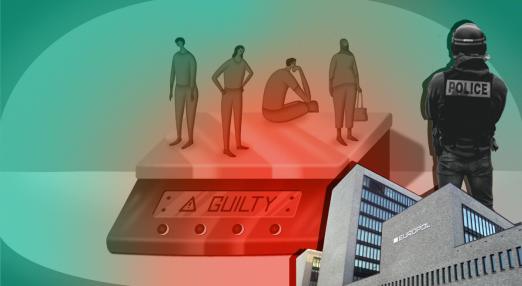
Development of EU border police watchlist is “progressing well”
The development of a new watchlist for “identifying connections” between people seeking authorisation to travel to the EU and terrorist or criminal suspects is “progressing well”, according to a Europol report obtained by EDRi member Statewatch.
Read more
-
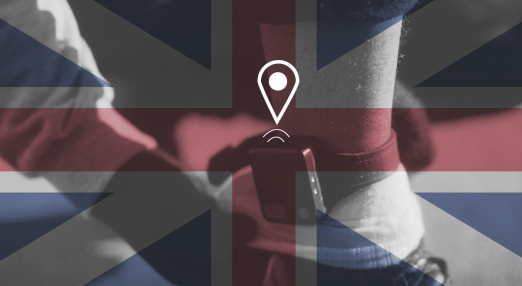
Warnings from the UK: 24/7 racialised GPS surveillance
Campaigners assembled outside Capita PLC’s Annual General Meeting in the City of London on Thursday 11 May are contesting the outsourcing company’s £114m contract to deliver 24/7 GPS monitoring services, used by the Home Office to surveil people without British citizenship.
Read more
-

EDRi-gram, 28 June 2023
Recent developments in crucial digital European Union regulations have raised many eyebrows as we see attempts to undermine human rights. 27 civil society organisations, including EDRi, stood against the use of people's sensitive information to target them with political messages online. 65 civil society and journalist associations also urged the Council of the European Union to ensure stronger safeguards to protect journalists in the European Media Freedom Act. In this edition, you can also read about how digital rights are a civic space issue and why privacy is not a crime.
Read more
-
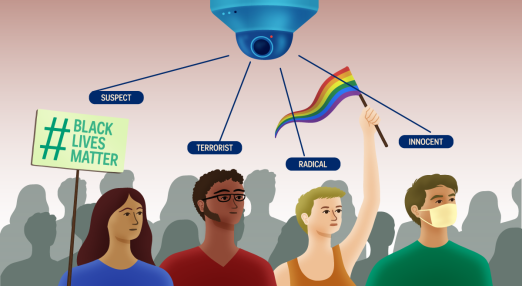
Digital rights for civil society and civil society for digital rights: how surveillance technologies shrink civic spaces
Digital technology has transformed civic spaces - online and offline. In our digital societies, characterised by injustice and power imbalances, technology contributes to shrinking civic spaces. And to defend civic spaces against surveillance, we need strong and resourced civil society organisations and movements.
Read more
-
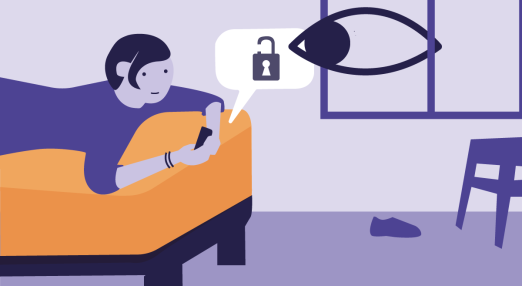
Civil liberties MEPs warn against undermining or circumventing encryption in CSAR
MEPs from the European Parliament’s Civil Liberties committee have thrown down the gauntlet with their amendments to one of the EU’s most controversial proposals: the Child Sexual Abuse Regulation (CSAR). These amendments show a clear majority for fully protecting the integrity of encryption. Content warning: contains discussions of child sexual abuse and child sexual abuse material
Read more
-
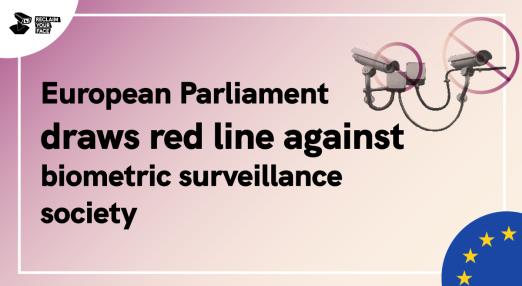
European Parliament draws red line against biometric surveillance society
On Wednesday 14 June 2023, the European Parliament voted to ban most public mass surveillance uses of biometric systems. This is the biggest achievement to date for the eighty organisations and quarter of a million people who have supported the Reclaim Your Face campaign's demand to end biometric mass surveillance (BMS) in Europe.
Read more
-
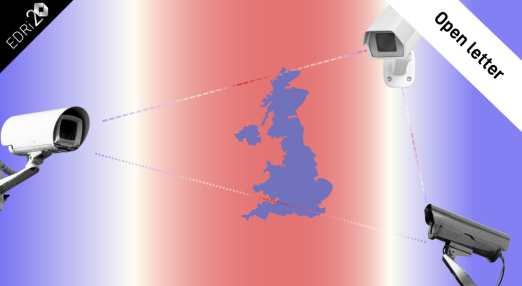
Online Safety Bill insecure: international organisations, academics and cyber experts urge UK government to protect encrypted messaging
EDRi, Open Rights Group and over 80 civil society organisations, academics and cyber experts from 23 countries have written to the UK government to raise the alarm about proposed powers in the Online Safety Bill.
Read more
-
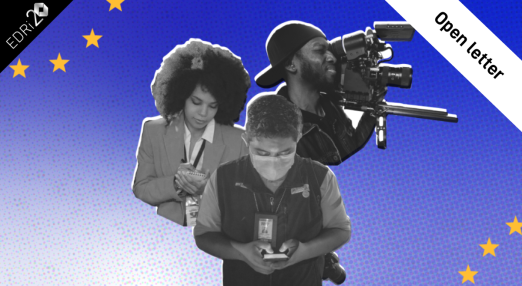
Open letter: The Council of European Union must protect journalists against spyware and surveillance in the European Media Freedom Act
Civil society and journalist associations are calling on the Council of the European Union to reconsider its current position on the European Media Freedom Act, as stated in a recent compromise text. Instead, the Council must take steps to meaningfully protect journalists and their fundamental rights.
Read more
-

Open Letter: Make vulnerability disclosure in the Cyber Resilience Act more secure, not less
The CRA would require organisations to disclose software vulnerabilities to government agencies within 24 hours of exploitation. However, such recently exploited vulnerabilities are unlikely to be mitigated within such a short time, leading to real-time databases of software with unmitigated vulnerabilities in the possession of potentially dozens of government agencies. Read the open letter.
Read more
-

EU Parliament calls for ban of public facial recognition, but leaves human rights gaps in final position on AI Act
The final EU Parliament position upholds all of the fundamental rights demands which were added at committee level. Despite efforts to overturn it, the final position also maintains the committees' strong stance against biometric mass surveillance practices. But it is disappointing that the plenary missed the opportunity to increase protections when it comes to empowering people affected by the use of AI and the rights of migrants, refugees and asylum seekers.
Read more
-

EDRi-gram,14 June 2023
It’s getting hot in here – and we don’t just mean the weather. By the time this EDRi-gram reaches your inbox, the EU Parliament will have voted on the AI Act and the "e-Evidence" package. This is a crucial moment for the AI Act as we push hard and keep our fingers crossed for all the wins of the committee vote to remain after the plenary. We also have serious concerns about the e-Evidence proposal posing a threat to our fundamental rights. Along with other civil society groups, doctors and journalists organisations and internet service providers, we are calling on Members of European Parliament to reject this package. In this edition you can also read about what changed in the ten years since Snowden’s revelations about mass surveillance by the US government.
Read more
-

Snowden revelations: ten years on
Ten years ago, the first revelations about US mass surveillance were published in the UK and USA. The revelations swiftly widened to encompass details about the role of the UK’s GCHQ (Government Communications Headquarters) in the global gathering of vast amounts of communications data.
Read more
